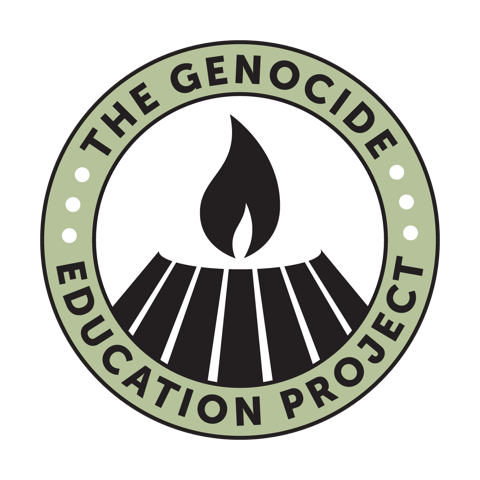New Orleans, LA, Nov. 15, 2015 – The Genocide Education Project (GenEd) participated in the 95th annual National Council for the Social Studies (NCSS) in New Orleans, Louisiana, November 13-15. This year’s theme was social responsibility, encouraging teachers to incorporate into their courses curriculum that will enhance students’ sense of good citizenship, locally and globally.
NCSS welcomes approximately 4,000 educators to learn about the latest innovations, methodologies, and teaching resourc es from 400 presenters, 150 exhibitors, and multiple keynote speakers.
es from 400 presenters, 150 exhibitors, and multiple keynote speakers.
 GenEd’s Education Director, Sara Cohan, presented a workshop on “The Ten Stages of Genocide and the Armenian Case.” The session explored guidelines for teaching about genocide using the United Nations definition of genocide and the work of Dr. Gregory Stanton, delineating ten stages that genocides pass through, beginning with “classification” and ending with “denial.”
GenEd’s Education Director, Sara Cohan, presented a workshop on “The Ten Stages of Genocide and the Armenian Case.” The session explored guidelines for teaching about genocide using the United Nations definition of genocide and the work of Dr. Gregory Stanton, delineating ten stages that genocides pass through, beginning with “classification” and ending with “denial.”
Educators received background materials on the Armenian Genocide, the Ten Stages of Genocide, and curriculum on the 100th anniversary of the Armenian Genocide, as well as the recently published lesson on the work of Near East Relief, the American humanitarian organization established to help shelter, feed, and educate  Armenian Genocide survivors.
Armenian Genocide survivors.
During the training workshop, Cohan provided strategies to help ensure students learn about genocide in a historically and ethically appropriate manner.
GenEd was also present with a informational booth on the conference exhibit floor, introducing teaching materials to hundreds of teachers.
“It was ex hilarating to meet so many educators who are so passionate about teaching history,” said GenEd board member, Roxanne Makasdjian. “Scores of social studies teachers sought out GenEd’s booth to request more information, specific curriculum to use in their classrooms, or to let us know how they’re incorporating the Armenian Genocide into their core World History courses or elective courses on the Holocaust, Genocide, World Cultures, or Global Studies.”
hilarating to meet so many educators who are so passionate about teaching history,” said GenEd board member, Roxanne Makasdjian. “Scores of social studies teachers sought out GenEd’s booth to request more information, specific curriculum to use in their classrooms, or to let us know how they’re incorporating the Armenian Genocide into their core World History courses or elective courses on the Holocaust, Genocide, World Cultures, or Global Studies.”
